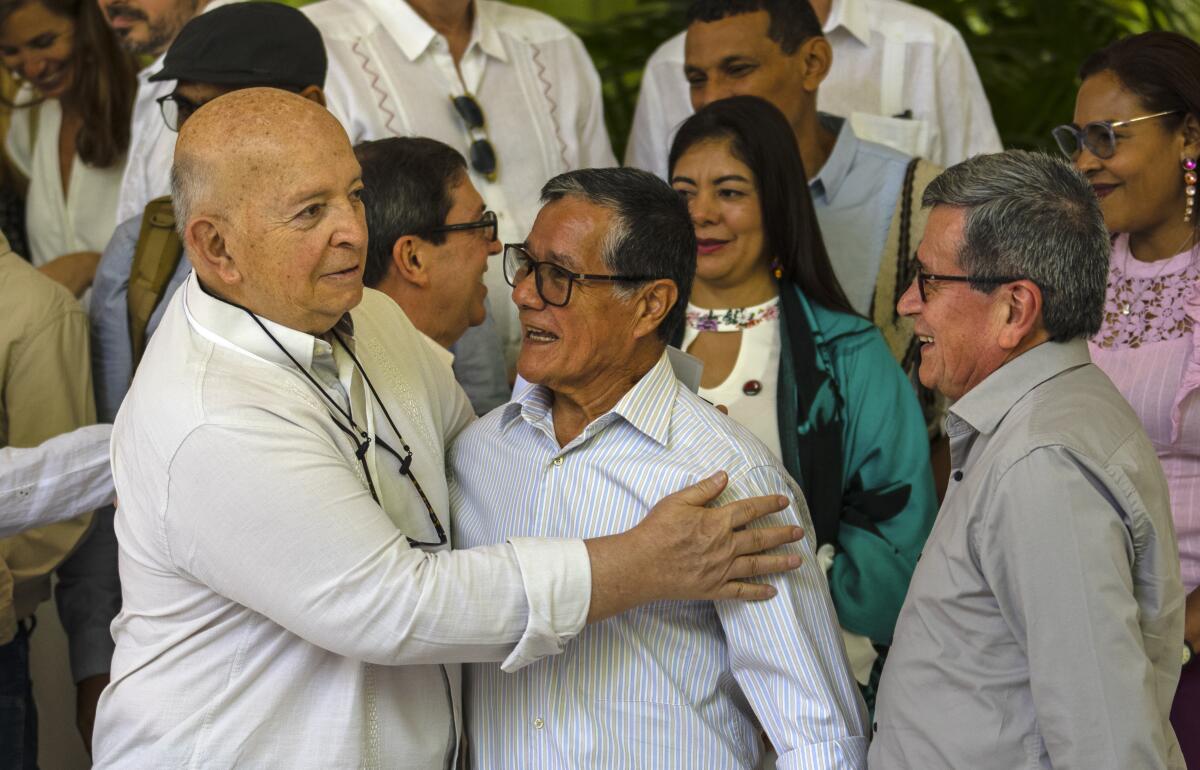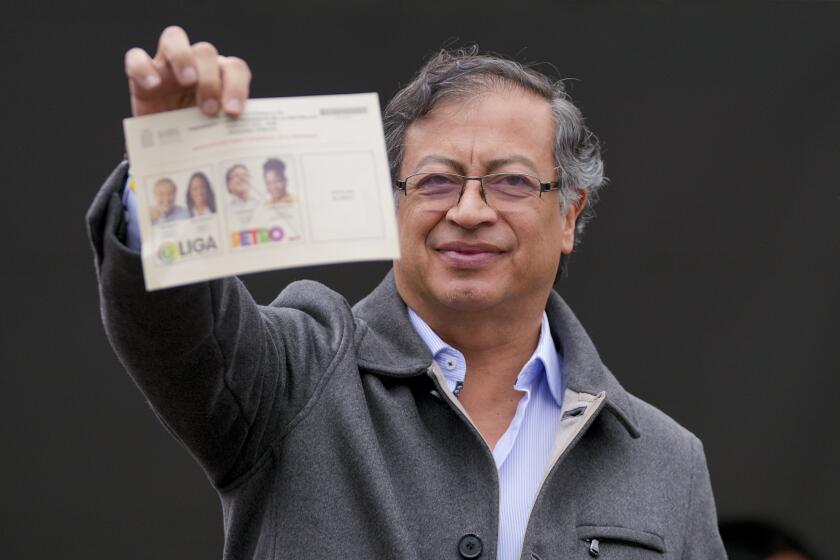Colombia’s government, largest remaining rebel group agree to cease-fire at talks in Cuba

- Share via
HAVANA — Colombia’s government and the country’s largest remaining guerrilla group declared a cease-fire agreement Friday at talks in Cuba, the latest attempt to resolve a conflict dating to the 1960s.
The government and the National Liberation Army, or ELN, announced the accord at a ceremony in Havana attended by Colombian President Gustavo Petro, top guerrilla commander Antonio García and Cuban officials. The cease-fire takes effect in phases and goes fully into effect in August.
“This effort to look for peace is a light of hope that conflicts can be solved politically and diplomatically,” top rebel negotiator Pablo Beltrán said at the ceremony.
The talks originally were scheduled to conclude with an official ceremony Thursday, but were postponed as the parties asked for additional time to work on final details. Petro traveled to the island for the ceremony, saying it could herald an “era of peace” in Colombia.
Negotiations between the sides resumed in August, after being terminated in 2019 when the rebels set off a car bomb at a police academy in Bogota, killing 21 people.
It’s one of the United States’ few enduring alliances in an often-turbulent Latin America, one built around a decades-long partnership combating the nation’s drug cartels.
Following that incident, the government of then President Iván Duque issued arrest warrants for ELN leaders in Cuba for the peace negotiations. But Cuba refused to extradite them, arguing that doing so would compromise its status as a neutral nation in the conflict and break with diplomatic protocols.
Talks relaunched in November shortly after Petro was elected as Colombia’s first leftist president.
Petro has pushed for what he calls a “total peace” that would demobilize all of the country’s remaining rebel groups as well as its drug trafficking gangs. He has questioned whether senior ELN leaders have full control of a younger generation of commanders who he has suggested are focused more on the illegal drug trade than on political goals.
The ELN was founded in the 1960s by union leaders, students and priests inspired by the Cuban revolution. It is Colombia’s largest remaining rebel group and has been notoriously difficult for previous Colombian governments to negotiate with.
In a ceremony that once seemed unimaginable, the Revolutionary Armed Forces of Colombia, or FARC, finished disarming on Tuesday as part of last year’s historic peace deal.
In 2016, Colombia’s government signed a peace deal with the larger FARC group that ended five decades of conflict in which an estimated 260,000 people were killed.
But violence has continued to affect rural pockets of the country where the ELN has been fighting the Gulf Clan and FARC holdout groups for the control of drug trafficking routes and other resources.
More to Read
Sign up for Essential California
The most important California stories and recommendations in your inbox every morning.
You may occasionally receive promotional content from the Los Angeles Times.











